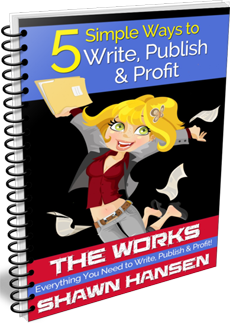 There are two very divided schools of thought on plotting. There are those who swear by it, and those who refuse to do it. Which is best?
There are two very divided schools of thought on plotting. There are those who swear by it, and those who refuse to do it. Which is best?
I think it depends on the writer and the project.
If you hate to plot, then trying to do it might not work for you. However, chances are good that if you were to do a little bit of preplanning, you'd find you work faster and end up with a better finished piece faster.
Those who can't imagine sitting down to write before having all of the twists turns and bullet points down on paper (or notecards) would be wise to try to leave a few gaps (or at least some space) in the plan to improvise. Your work will be better for it.
I find planning a very concise path with my nonfiction is important.
Because my nonfiction pieces tend to have a very clear, narrow purpose, plotting my points in advance keeps me on track and ensures I don't leave anything out. It also allows me to assess the value of an idea before I even start writing it.
On the flip side, keeping things loose with my fiction works best for me.
I know something important when I begin a work of fiction, but unlike my nonfiction, I rarely see the big picture before I dig into the writing. The fiction book I'm writing right now started with a lead character's name, his predicament, and a crime. It wasn't until I'd written several thousand words that I turned my lead into a cop, paired him up with a partner who is going to get killed to make room for the partner he'll really work with, and added a fun twist to the kind of man my lead is.
When I write fiction, I outline the initial important things that strike me, then I ask a lot of “what if” questions, and as I write, I go back and revise my outline and ask more “what ifs.”
Ultimately, I think the best way to approach most writing projects is with a combination of careful planning and seat-of-the-pants work.

Leave a Reply